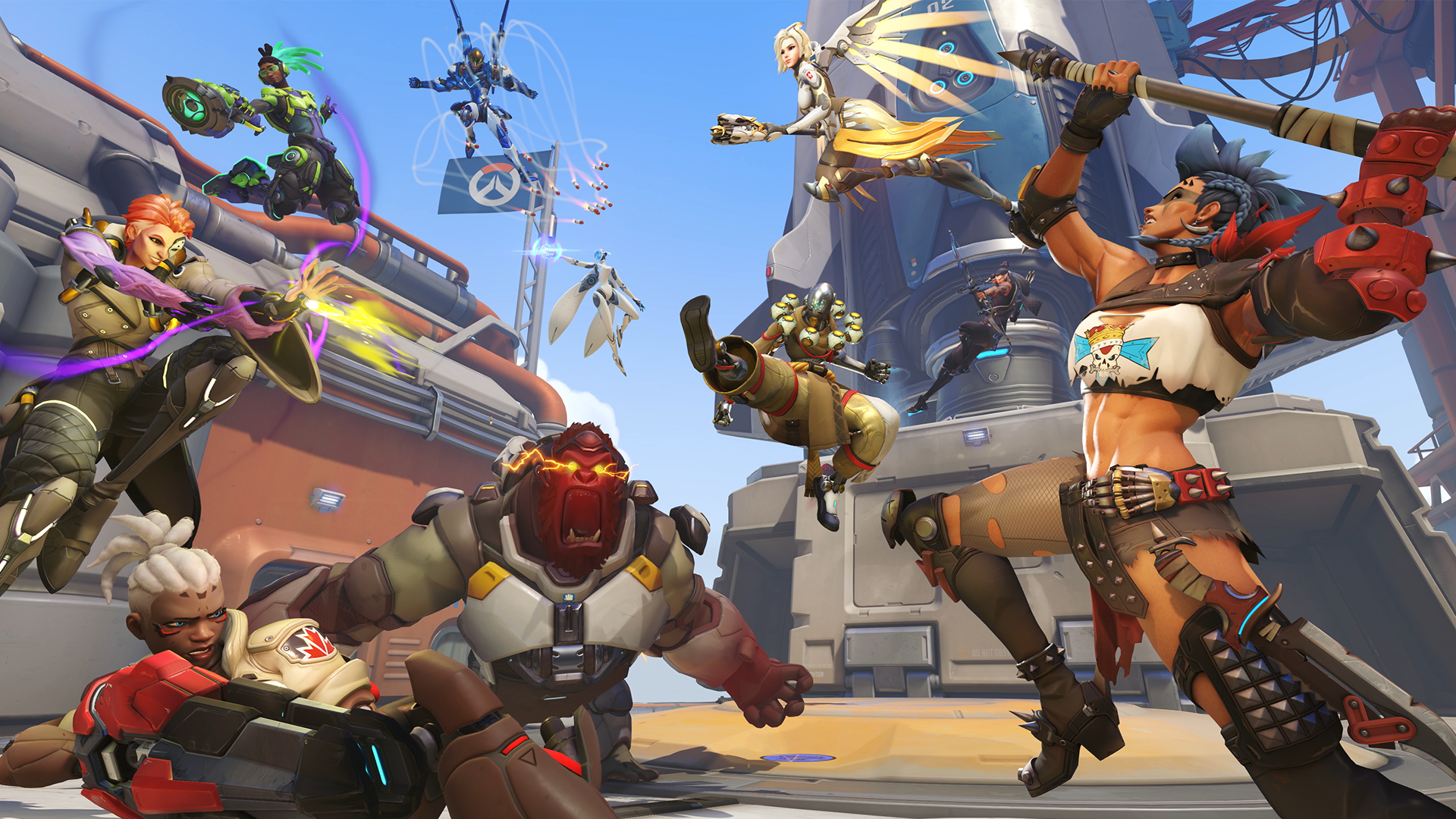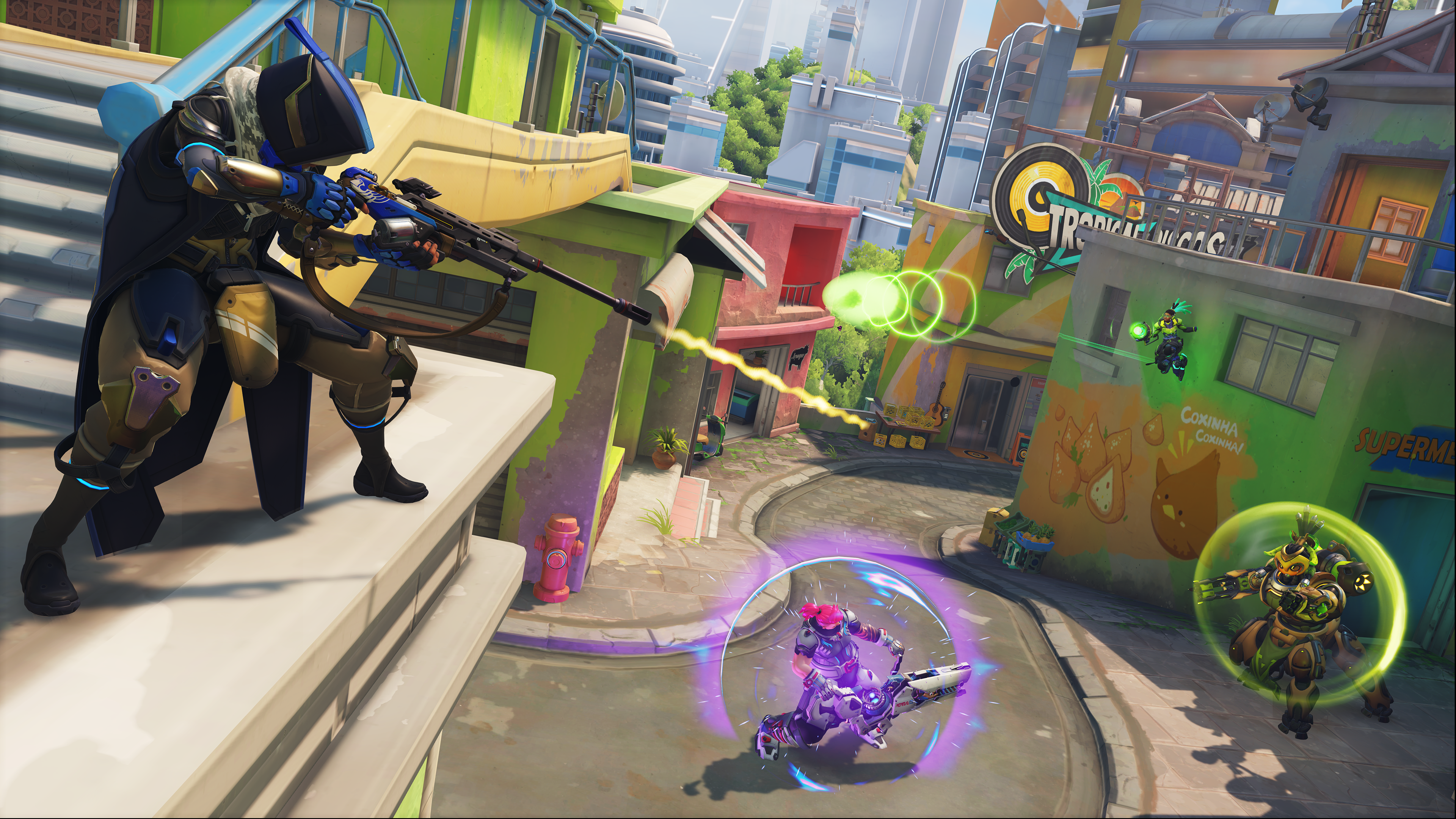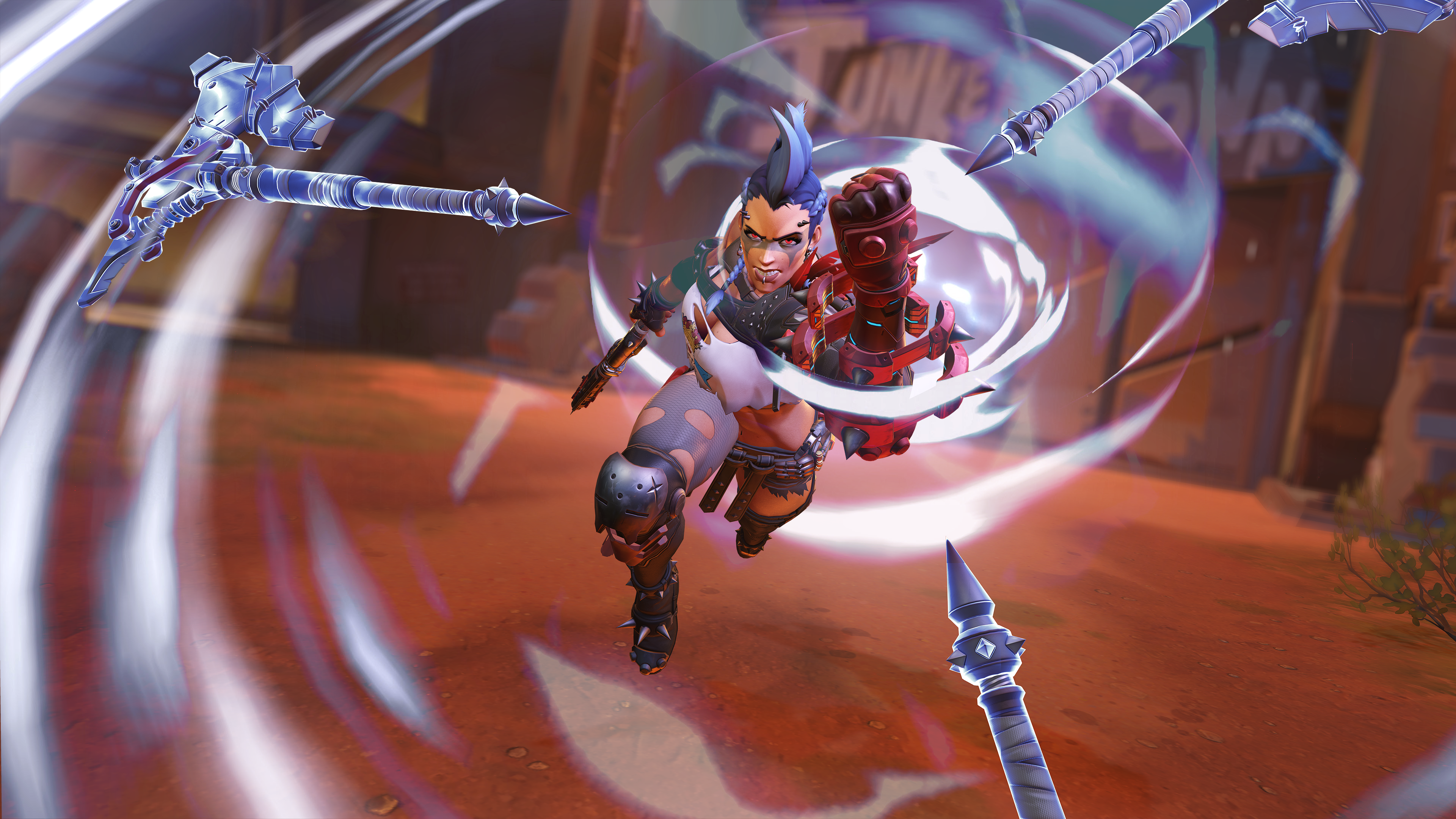
There’s nothing quite like whittling hours away with friends, setting the world to rights. Melting hours away having a chat with others is extremely cathartic, whether over a cozy coffee and cake, a cold glass of white wine and nibbles, or headshotting rivals in Overwatch.
For a long time, my ‘glass of wine’ was Overwatch. When I was first adjusting to my new life in London, having moved from Ireland for university, I was often overwhelmingly homesick. The close friends and family I would have prattled away with were an ocean away, but we found solace in playing Overwatch together as often as we could throughout the week – Blizzard’s team shooter offered a sense of togetherness a Skype call simply couldn’t.
I was never a particularly good Overwatch player, but, as time went on, I became proficient enough to be able to enjoy my chits chats without our team’s performance being compromised. I could mind the payload as D.Va while discussing my weekend plans, and keep the team alive as Mercy while offering relationship advice. I never wanted to be a professional-standard player, I just wanted to win quick play matches and have fun doing it. I was happy being average.
That doesn’t mean, however, that I didn’t care about the game. My team and I grew frustrated at how stale Overwatch was becoming. The release of both new maps and heroes was few and far between, and when Blizzard did add new heroes, they seemed to be broken (looking at you, Brigitte). Eventually, we stopped playing altogether.
Overwatch 2, however, looked to offer the perfect opportunity to jump back in. It promised to breathe new life into the shooter that was once the backdrop to my Friday nights. But, I quickly found out, Overwatch isn’t for players like me anymore.
Lack of coordination

Overwatch 2 sits in a weird place that is becoming more and more commonplace with live service games: not quite a sequel nor a patch. Instead, it’s more of an overhaul, introducing many refinements, a new battle pass system, character redesigns, and new game modes. To be honest, having been away for as long as I have, I’ve been slightly disappointed to see how little genuinely new content there is. You’d think an overhaul, plus the two years we were away, would see a host of new maps and heroes rolled out. Instead, it feels like Blizzard hasn’t done the full step they needed to, taking a tentative half step with Overwatch 2 instead.
What is noticeable, is the refinements and changes that have been rolled out seem to benefit a certain type of Overwatch player: the professional or highly competitive players. The Overwatch 2 players who have a tight-knit squad that plays to win every day or The Overwatch League.
Sign up for breaking news, reviews, opinion, top tech deals, and more.
The change to 5v5 matches means that coordination is more crucial than ever, and each player’s contribution has more impact. But, for out-of-practice players, there’s nowhere to hide: with 6v6, there was a bit of wiggle room, space for mistakes. You could take a breath and, as I used to, have a bit more of a relaxed approach to the game. If someone in your team simply wasn’t very good, you could (through gritted teeth) get on with the match and maybe even win. Even venturing into ranked games, I felt confident enough to play my part and knew that as long as my friends and I were coordinated and doing well, we had a shot at success – even if someone wasn’t pulling their weight.

Now, however, if you aren’t playing at the top of your game, it’s not just obvious but debilitating. A good Tank, for example, can make your game. Especially given you get one less in Overwatch 2, and currently, the majority are extremely overpowered. But the reverse is true, too: pitting a bad Zarya against a competent one will likely decide the outcome of the match. It’s particularly bad at the moment because the release of Overwatch 2 has attracted lapsed players, like myself, who are trying to make sense of the changes and refinements. In particular the increased focus on coordination – a difficult ask of solo queuers.
Sure, this isn’t as important in quick play, but it sure does zap the fun out of the game to feel you are responsible for your team’s loss, or to find yourself blaming a single player on your team for a defeat. If you’ve got a full squad that you can coordinate with, then things are considerably easier, but that has its own problems. Blizzard tends to pair groups against other groups, so, if you get a squad of friends together, you can often find your less experienced Overwatch 2 team pitted against seasoned teams. You don’t stand a chance, especially when it comes to new modes like Push.
Coordination with strangers is possible, but in-game communication can often be toxic and offputting. If you’re trying to better yourself as a player, it’s unlikely someone will provide you with constructive criticism to do that. You’re expected to be good already.
A new era

As a casual player, I used to find Overwatch fun and approachable. Ranked play was where the competition was, where coordination was essential and the pressure was high. Quick play, on the other hand, was for those who wanted to try out new characters and tactics without the demand of Ranked.
But, with Overwatch 2, the skill ceiling has been pushed upwards, and the pressure to perfom is even higher than before – even in quick play. I feel like I’m swimming against a tide of high-level, invested players and I’m not quite sure I’ve got the stamina to keep up. Nor do I want to anymore.
An award-winning games journalist, with seven years of experience in games journalism and a degree in journalism from City University, London, Vic brings experience from IGN, Eurogamer, The Telegraph, VG247, Dot Esports and more to the TechRadar table. You may have even heard her on the radio or speaking on a panel, as she’s previously appeared on BBC Radio 4, BBC Radio 5, BBC Radio Ulster and more. Not only is Vic passionate about games, but she's appeared on both panels and podcasts to discuss mental health awareness. Make sure to follow her on Twitter for more.